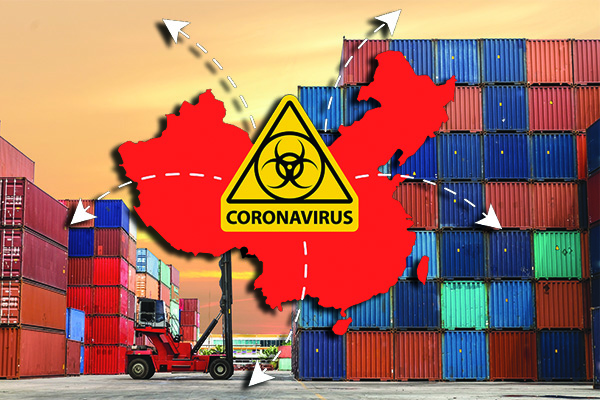Editor’s Note: Cory Searcy is Professor of Industrial Engineering and Environmental Applied Science & Management at Ryerson University. His research focuses on sustainable supply chains, performance measurement, and auditing. He is currently serving as the Vice-Provost and Dean of graduate studies at Ryerson. He holds a PhD from the University of Alberta. Payman Ahi is Full Sessional Lecturer of Global Management Studies in the Ted Rogers School of Management at Ryerson University. His research focuses on sustainable supply chains, sustainability metrics, and sustainable business practices. He holds a PhD from Ryerson University.
The Covid-19 crisis has shaken global supply chains to their core. Stories of stretched or broken supply chains in industries as diverse as medical equipment, food, and rare earth minerals have been widely-documented. The pandemic has forced businesses around the world to re-evaluate long-held assumptions on the design and operation of their supply chains. Notably, Covid-19 has underscored the trade-offs inherent in supply chain management.
Companies typically seek to simultaneously optimize multiple objectives in their supply chain management practices. They might, for example, strive to lower costs while also improving product quality. However, there are also many times where compromise is needed in one area in order to obtain benefits in another, particularly over short time horizons. These compromise situations require companies to make trade-offs.
Supply chain management is concerned with getting a product to the right place at the right time. Companies seek to achieve this while putting differing degrees of emphasis on goals such as cost, quality, geographic location, delivery lead time, and environmental impact, among many others. Any combination of these goals can potentially come into conflict, creating the need for decisions on potential trade-offs. Consider three examples of how Covid-19 has underlined potential cost-related trade-offs in supply chain management.
- First, the recent disruptions have renewed attention on inventory levels. Many industries have spent the last several decades moving to just-in-time manufacturing models, which emphasize low stock levels in order to reduce inventory costs. Just-in-time, however, is based on assumptions of reliable, on-time deliveries of defect-free products. Production can rapidly grind to a halt due to any delivery delays, situations that have been exacerbated in many industries by Covid-19. While companies can hedge against these risks with higher levels of safety stock, there is a clear cost trade-off between low and high inventory levels.
- Second, Covid-19 has highlighted the importance of flexibility within the supply chain. Supply chain flexibility is fundamentally about adjusting to changing circumstances, such as product demand or supplier capacity. For example, the pandemic has tested the ability of companies to keep up with surging demand for some products. It also tested the capability of companies to change suppliers due to export restrictions or facility shutdowns, which can only be done if those suppliers have unused capacity or the ability to rapidly shift production. Having a wider or redundant supplier base can facilitate such supplier pivots, but it could also mean trade-offs related to increased contract costs or reduced efficiency due to lower order volumes per supplier.
- Third, the pandemic has shone light on the advantages of strong collaboration throughout the supply chain. Collaborations can help in proactively identifying and managing risks, which can increase the resilience of a supply chain during times of crisis. Regular communication with collaborators can also increase the visibility of the supply chain, which is critical in understanding the potential impacts of disruptions beyond the first tier of suppliers. Strong collaborations, however, require long-term relationship building that require ongoing investments, such as in information sharing and mutual capacity building. There is often a trade-off, at least in the short-term, between the strength of supplier collaborations and the costs of that relationship building.
These examples are illustrative; there are many others and the specific trade-offs can vary widely from one supply chain to another. It is also clear that addressing the trade-offs resurfaced by Covid-19 will require strategies tailored to a company’s unique circumstances. A medical supply company will no doubt weigh trade-offs differently than a toy company. Two key implications of the Covid-19 crisis, however, are broadly applicable.
First, companies should place a greater emphasis on scenario analysis going forward. Scenario analysis is already widely used in business, but more weight is needed on exploring the implications of low probability, high impact events and to stress test supply chain designs. Second, companies will need to adjust their measures and perspectives of supply chain performance. The possibility of supply chain disruption is often overlooked in existing metrics. Stock levels of critical inventory, for example, may take on renewed significance. Scenario analysis and revised performance measures will provide important inputs into new models of supply chain design and operation.
The pandemic has exposed the fragility of global supply chains and revealed the immense costs of disruptions to those chains. There is an urgent need to revisit old assumptions grounded in supply chain reliability and stability. Difficult trade-offs in supply chain management must be identified, discussed, and assessed in light of these changed circumstances.
SC
MR


Latest Supply Chain News
- How S&OP provides the answer to in-demand products
- AI, virtual reality is bringing experiential learning into the modern age
- Humanoid robots’ place in an intralogistics smart robot strategy
- Tips for CIOs to overcome technology talent acquisition troubles
- There is still work to do to achieve supply chain stability
- More News
Latest Podcast

 Explore
Explore
Business Management News
- How S&OP provides the answer to in-demand products
- AI, virtual reality is bringing experiential learning into the modern age
- Tips for CIOs to overcome technology talent acquisition troubles
- There is still work to do to achieve supply chain stability
- Blooming success: The vital role of S&OE in nurturing global supply chains
- Supply chain salaries, job satisfaction on the rise
- More Business Management
Latest Business Management Resources

Subscribe

Supply Chain Management Review delivers the best industry content.

Editors’ Picks





